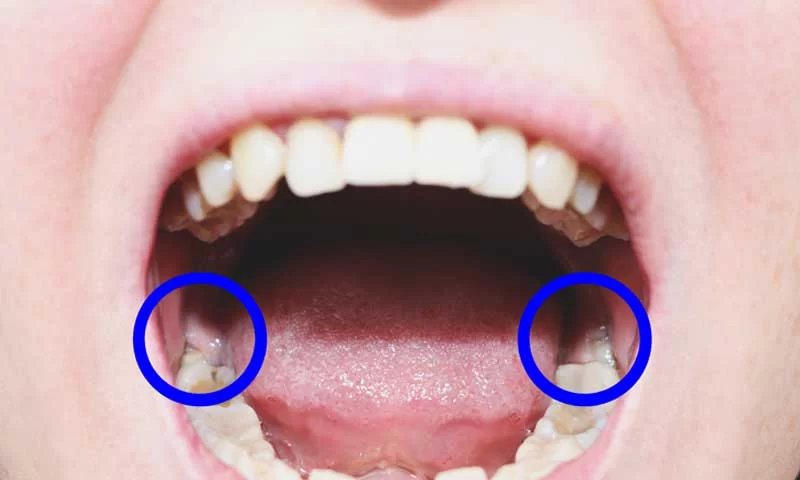
Signs That Your Wisdom Teeth Are Coming In: Key Symptoms to Watch For
- Recognizing Wisdom Teeth Symptoms
- Pain and Discomfort: What to Expect
- Swelling and Gum Tenderness
- Difficulty Opening Your Mouth: A Red Flag
- When to Consult Your Dentist About Wisdom Teeth
Recognizing Wisdom Teeth Symptoms
Wisdom teeth, or third molars, typically emerge in late adolescence or early adulthood. While some people experience no issues with their wisdom teeth, others may face challenges as the teeth begin to erupt. Understanding the common symptoms can help you identify when your wisdom teeth are coming in and what steps to take to manage them.
Some of the most common signs that your wisdom teeth are coming in include:
- Swollen or Red Gums: As your wisdom teeth begin to emerge, the gums around the area may become swollen, red, and tender to the touch.
- Increased Sensitivity in the Back of Your Mouth: The area where the wisdom teeth are coming in may feel sensitive, especially to hot or cold foods and drinks.
- Pressure in the Jaw: As the wisdom teeth push through, you may experience a feeling of pressure in your jaw, which can sometimes lead to discomfort or pain.
While these symptoms are normal during the eruption of wisdom teeth, they can be uncomfortable. Monitoring them can help you determine when to seek professional dental advice.
Pain and Discomfort: What to Expect
Pain is one of the most significant signs that your wisdom teeth are coming in. As the teeth emerge, they may cause irritation and discomfort in the surrounding gums, jaw, and sometimes even in your ears. The level of pain varies from person to person, but there are common indicators that your wisdom teeth may be causing you trouble:
- Throbbing Pain in the Back of the Mouth: This is one of the most common symptoms of wisdom tooth eruption. It may feel like a dull ache or a sharp pain, especially when chewing or speaking.
- Increased Jaw Stiffness: The pain may be accompanied by difficulty in opening your mouth fully, making it hard to eat or speak comfortably.
- Headaches: Sometimes, pain from wisdom teeth can radiate up to your head, causing headaches that can last for hours or days.
If you are experiencing persistent pain, it’s essential to consult a dentist to determine if your wisdom teeth are the cause and discuss possible treatment options.
Swelling and Gum Tenderness
Swelling around your wisdom teeth is a common sign that they are coming in. This is caused by the pressure exerted on the gums as the teeth break through the gum line. The swelling is often accompanied by tenderness, which can make eating and brushing difficult.
Other signs to look out for include:
- Localized Swelling: The swelling may occur only around the specific tooth or area where the wisdom tooth is emerging, and it can be painful to the touch.
- Gum Redness and Irritation: The gums may become irritated or inflamed as the teeth push through, which could also lead to bleeding in some cases.
- Difficulty Cleaning the Area: As the wisdom teeth emerge, it can become challenging to clean the back of your mouth properly, leading to a higher risk of gum infections and other oral issues.
Swelling and gum tenderness are usually temporary and may subside as the teeth fully emerge. However, if the swelling persists or worsens, it’s important to visit a dentist.
Difficulty Opening Your Mouth: A Red Flag
One of the more concerning symptoms of wisdom tooth eruption is difficulty in opening your mouth, also known as "trismus." This may happen when the emerging wisdom teeth put pressure on the surrounding tissues or muscles, leading to jaw stiffness and discomfort.
If you experience difficulty chewing, speaking, or even opening your mouth wide, it could be an indication that your wisdom teeth are impacting your jaw or adjacent teeth. In some cases, this can lead to more severe conditions, such as infection or misalignment of your other teeth.
If you notice this symptom, it’s crucial to contact your dentist, who may recommend an X-ray to assess the position of the wisdom teeth and determine whether they need to be removed.
When to Consult Your Dentist About Wisdom Teeth
If you notice any of the signs that your wisdom teeth are coming in, it’s important to schedule a dental appointment. Even if you don’t experience severe pain or discomfort, your dentist can help determine whether your wisdom teeth are coming in correctly or causing issues.
Common signs that you should consult your dentist include:
- Persistent or Severe Pain: If the pain is unmanageable or lasts more than a few days, it could be a sign of an underlying issue such as an infection or impaction.
- Swelling and Redness That Doesn’t Subside: If swelling and gum tenderness persist, it may indicate an infection that requires professional treatment.
- Difficulty in Opening Your Mouth or Chewing: If these symptoms interfere with your daily activities, you should seek professional advice.
Your dentist will evaluate the positioning of your wisdom teeth and recommend whether they should be removed or if other treatments are necessary. Early intervention can help prevent complications down the road.
If you’re concerned about your wisdom teeth, visit Dentistry Toothtruth to schedule a consultation. Their team can provide expert guidance and discuss options tailored to your oral health needs.







 Blue Ridge Dental: Kemmitt, Gregory J. DDS0.0 (0 review)
Blue Ridge Dental: Kemmitt, Gregory J. DDS0.0 (0 review) Valleywise Community Health Center - Mesa3.0 (252 review)
Valleywise Community Health Center - Mesa3.0 (252 review) Robb D. Kozlowski, DDS0.0 (0 review)
Robb D. Kozlowski, DDS0.0 (0 review) All Smile Dental Center3.0 (31 review)
All Smile Dental Center3.0 (31 review) Babylon Dental Care4.0 (388 review)
Babylon Dental Care4.0 (388 review) Shining Smiles Dentistry4.0 (433 review)
Shining Smiles Dentistry4.0 (433 review) The Importance of Oral Health Education During Pregnancy for a Healthy Pregnancy
The Importance of Oral Health Education During Pregnancy for a Healthy Pregnancy Best Tips for Brushing Your Teeth Properly for Healthy Gums: Essential Techniques for Oral Health
Best Tips for Brushing Your Teeth Properly for Healthy Gums: Essential Techniques for Oral Health Why Skipping Dental Checkups Can Lead to Bigger Oral Health Problems
Why Skipping Dental Checkups Can Lead to Bigger Oral Health Problems Advantages of Porcelain Dental Restorations
Advantages of Porcelain Dental Restorations How Can Diabetes Cause Tooth and Gum Problems? Preventing and Managing Oral Health Issues
How Can Diabetes Cause Tooth and Gum Problems? Preventing and Managing Oral Health Issues Healthy Habits for Promoting Good Oral Health and Hygiene: Tips for a Healthy Smile
Healthy Habits for Promoting Good Oral Health and Hygiene: Tips for a Healthy Smile